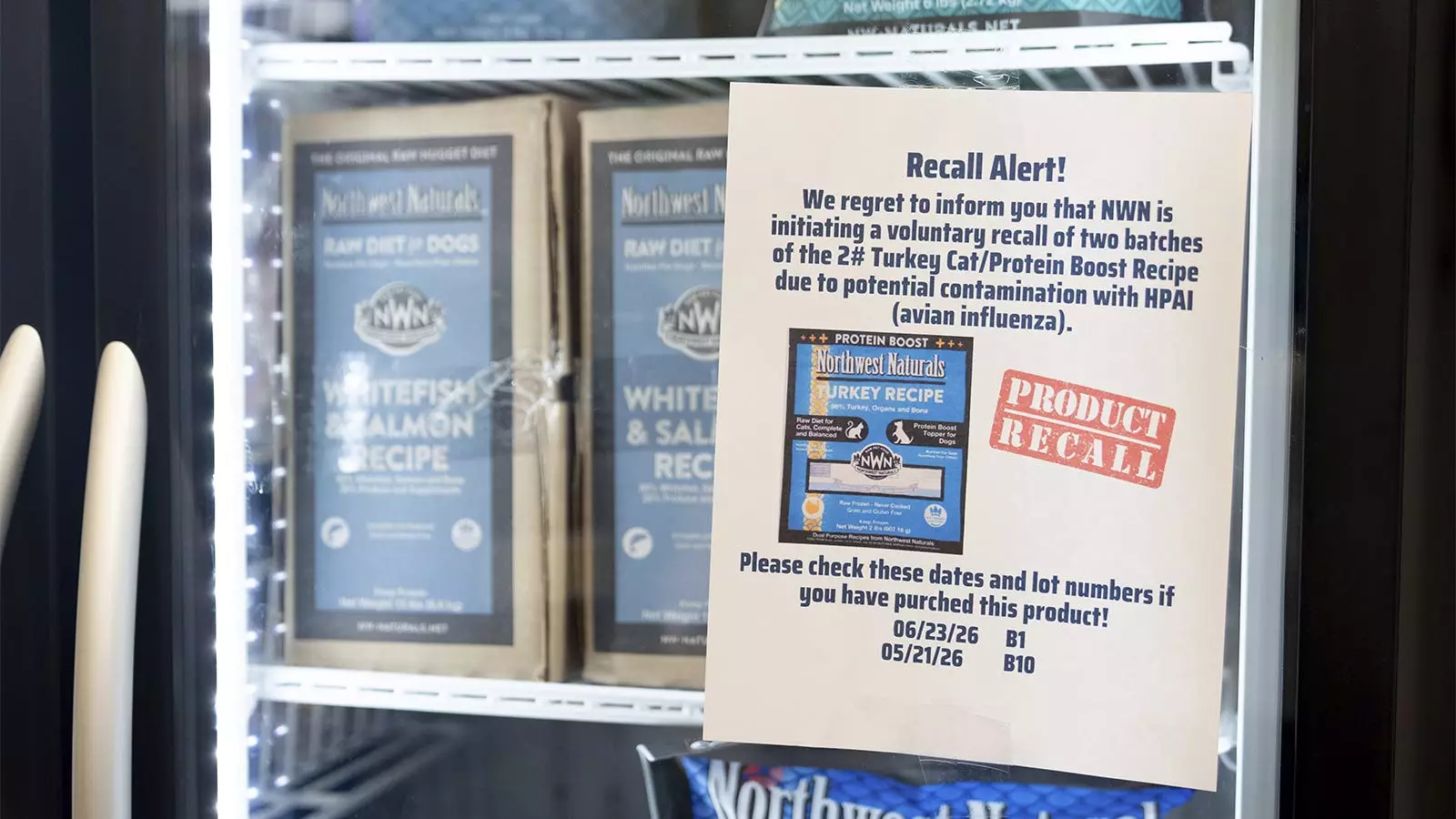The recent death of a house cat in Oregon and a related recall of a pet food product have sparked serious concerns regarding the outbreak of bird flu and the potential risk it poses to household pets. This resurgence of avian influenza, particularly the Type A H5N1 strain, has been environmentally persistent, primarily circulating among wild birds, poultry, and various livestock species. Initially detected in U.S. dairy cattle back in March, this virus has led to sporadic but concerning infections in humans, predominantly among those working in agriculture. As bird flu continues to make its rounds, its implications for our companion animals are becoming increasingly pronounced, highlighting the urgent need for pet owners to take preventive measures.
Links Between Pet Food and Bird Flu
Health authorities in Oregon have established a connection between the infected cat’s illness and specific batches of frozen cat food that contained raw turkey. Genetic analysis confirmed that the strain found in the recalled food matched that of the deceased cat. This troubling discovery has reignited debates among veterinarians and animal health experts about the dangers posed by feeding pets raw meat. Dr. Michael Q. Bailey, the president-elect of the American Veterinary Medical Association, emphasizes that while raw diets are a growing trend among pet owners, such practices could inadvertently expose animals to harmful pathogens, including the bird flu virus. Cooking meat or pasteurizing dairy is essential to eliminate these dangers, protecting both pets and their owners.
Certainly, the question arises: are our pets vulnerable to bird flu? While human cases remain comparatively rare, cats have shown a distinct susceptibility to this virus. A troubling trend has emerged since March, with numerous felines—ranging from domestic house cats to feral and exotic species in captivity—contracting the virus. The Los Angeles County Department of Public Health has even launched an investigation following the alarming deaths of multiple house cats that had consumed raw milk from a recalled batch. On the contrary, dogs appear to be less susceptible, yet experts still advise that pets should only be fed properly cooked foods to mitigate any health risks.
With this information at hand, what steps should conscientious pet owners undertake to safeguard their feline companions? The first recommendation is to avoid giving cats raw or unpasteurized foods entirely. This includes raw meat and dairy products, which pose a dual risk of gastrointestinal upset and exposure to pathogens. Moreover, restricting outdoor access is critical, as outdoor cats often encounter wild birds and other potential disease carriers. Dr. Bailey notes the innate hunting behavior of cats, suggesting that even a brief unsupervised outing could lead to exposure.
Additionally, pet owners are advised against direct contact with sick or deceased birds and must practice proper hygiene after interacting with animals or poultry. Handwashing becomes a crucial line of defense in preventing the potential spread of pathogens, including the bird flu virus.
Recognizing Symptoms of Illness in Cats
Being proactive is essential, and part of that involves discerning the early symptoms that may indicate a cat has contracted bird flu. These can include a noticeable decrease in appetite, unusual lethargy, and fever. If a typically lively cat appears withdrawn or displays changes in behavior—like increased hiding or excessive sleeping—this should raise concerns. Other alarming symptoms may include inflamed or reddened eyes, nasal and ocular discharge, and respiratory distress. In such situations, it’s imperative to consult a veterinarian immediately, especially since infected cats should be kept away from individuals with weakened immune systems.
Food Safety and Recalls
Pet owners should also stay informed about food safety recalls. Recently, Northwest Naturals, a pet food manufacturer based in Portland, announced a voluntary recall of one batch of its frozen cat food—a 2-pound batch of Feline Turkey Recipe—after discovering the presence of bird flu. This product was distributed across various states, including Arizona, California, and Florida, among others. Those who have purchased this recalled food should dispose of it and seek refunds from retailers to prevent further risks.
While the circulating bird flu strain presents significant risks to our pets, particularly vulnerable cats, informed and responsible actions can mitigate these dangers. Staying vigilant, adhering to food safety practices, and recognizing symptoms early can help in protecting our beloved companions from this emerging threat.


Leave a Reply